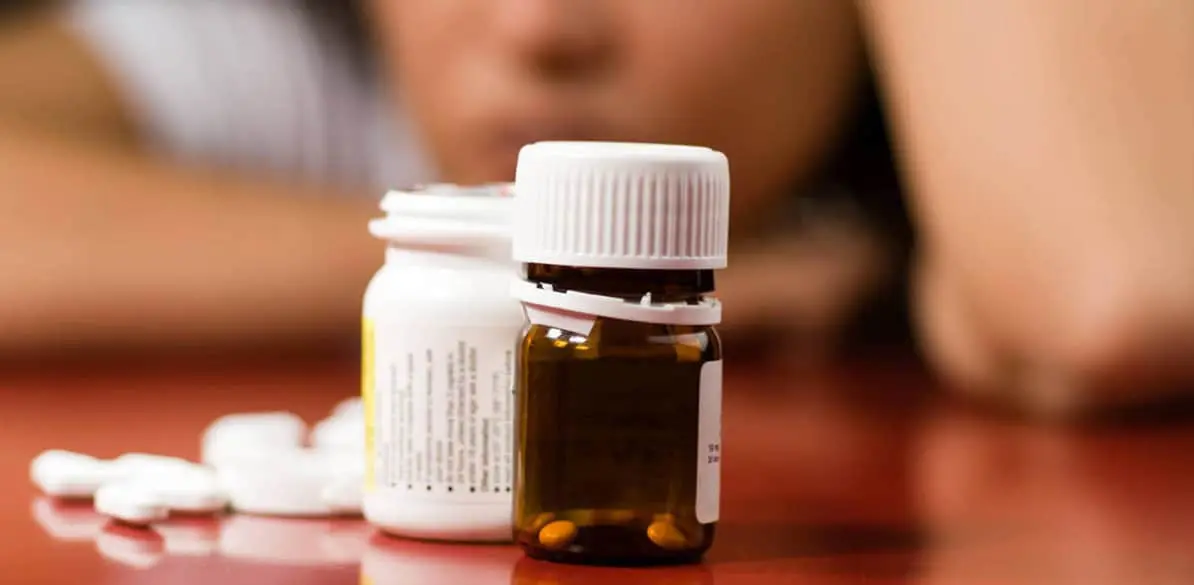Antidepressants and their influence in driving

There is a recent growing interest in the drugs used to fight depression and related disorders such as anxiety, phobias, obsessive-compulsive disorders, and panic disorders.
The start of clinical improvement in the treatment with antidepressants occurs usually from the third week of establishing the full dosage.
In case no improvement occurs within 8 weeks, treatment is necessary with the assistance of mental health professionals.
It is known that two-thirds of the patients discontinue the drugs prescribed by their physician in the first month of treatment.
Tricyclic antidepressants (TCA)
They have many side effects, but they can be reduced with the administration of single doses at night.
Nevertheless, mania, urinary retention, constipation, hypotension, headache, lack of coordination, sweating, eye accommodation disorders, tachycardia, ventricular arrhythmia, somnolence, insomnia, confusion, susceptibility to seizures, etc., can occur.
These adverse reactions are more frequent at the start of treatment, and are dose-dependent. Most of them subside at 2-3 weeks of starting the treatment.
Intoxication by tricyclic antidepressants can be fatal as a result of cardiac arrhythmia, severe hypotension, or seizures.
Venlafaxine
At the start of treatment, anxiety or nervousness symptoms, as well as insomnia, nausea, dizziness, and constipation can occur.
At high doses, they increase diastolic blood pressure, so it is recommended to closely monitor these treated patients. It has few interactions with other drugs, so it can be used with other drugs and alcohol.
The patient should be reminded that, though venlafaxine does not interfere with alcohol, when going to drive he should not take alcohol drinks, as they do interfere with driving.
Tetracyclic antidepressants
The active ingredients are nortriptyline, maprotiline, lofrepamine, and reboxetine.
It is generally not recommended to use nortriptyline and maprotiline in patients with cardiovascular disease or epilepsy.
Lofrepamine has few cardiotoxic, anticholinergic and sedative effects, but can cause hepatotoxicity.
Reboxetine is not sedative and does not cause psychomotor slowness, but can induce both urinary retention and tachycardia. It does not interact with alcohol, and it had a very low pharmacological impact on cognitive and psychomotor functions.
Monoaminooxidase inhibitors (MAOI)
The side effects of MAOI are multiple, particularly with moclobemide, including headache, insomnia, dizziness and tremor.
However, they have a low anticholinergic action, so they are better tolerated than tricyclic antidepressants, and cause less cardiovascular effects that these.
Selective serotonin reuptake inhibitors (SSRI)
The dosage of SSRI is more convenient than that of TCAS. The most commonly used are paroxetine, fluoxetine, citalopram, fluvoxamine, and sertraline.
In case of intoxication, SSRIs are less cardiotoxic, with a lower incidence of visual disturbances and much safer than TCAS. In general, they have less sedative and anticholinergic effects.
Nevertheless, they have side effects that lead to adopt caution, and even in some cases, to discontinue the treatment.
The most common adverse reactions are tremor, parkinsonism, headache, restlessness, dyspepsia, diarrhea, daytime somnolence, insomnia, irritability, nausea, agitation, and sexual dysfunction.
Antidepressants with action on serotoninergic receptors
Trazodone is highly sedative, and its side effects are sedation, hypotension, nausea and vomiting. It should not be used in heart diseases.
Nefazodone has a lower incidence of insomnia and gastrointestinal disorders than SSRI, but can cause dizziness, headache and nausea.
Antidepressants with action on alpha-adrenergic receptors
Mianserin is very sedative and with limited vegetative effects. It does not affect heart conductivity, but it can cause somnolence.
The mirtazapine is effective both in depression and anxiety. The most common side effects are significant somnolence and dizziness.
Lithium
Lithium salts are used for the treatment and prevention of manic-depressive psychosis, in mania or in depression. Toxic effects occur if blood lithium levels are higher than 1.2 mEq/l.
Lithium, for its direct action, does not cause sedation or usually cognitive disorders; when this occurs, it is often due to the hypothyroidism induced by lithium.
The acute benign side effects of lithium are tremor, nausea, fasciculation, polyuria, diarrhea, and polydipsia.
The toxic effects of lithium include persistent headache, gross tremor, vomiting, and mental confusion, that can progress to stupor, seizures, and cardiac arrhythmia.
Advice on antidepressive drugs
- Once contact is established with the depressive patient, the physician should see him every one or two weeks, explaining to him that the visits are aimed at assessing his evolution and discuss his feelings, reminding him that he cannot drive until he is expressly allowed for it.
- In case antidepressants should be administered to the patient, the physician should know the opinion of the patient with this regard.
- The physician should warn to the patient of the drug adverse reactions, more marked in the first weeks of treatment, of the risk of toxicity and, finally, an adequate compliance should be requested to him.
- The patient cannot drive, even though his mood is better, until the physician informs him that the drug is effective, the dosage adequate and the side effects do not limit his ability to drive.
- The patient cannot discontinue the antidepressant treatment suddenly, warning him that, if notices any discomfort or adverse reaction, he should immediately go to the clinic, and recommending him not to drive in that period.
- It is important that the patients do not make dosage changes. Psychodrugs should not be prescribed in cases where an adequate consumption cannot be assured or when it is suspected that the patient can use them to commit suicide.
- The follow-up of the depressive patients is essential to prevent disability for driving both due to the disease and to the recommended treatment.
